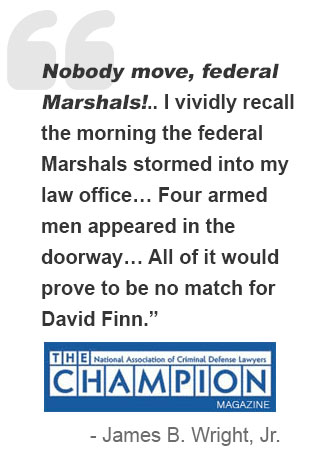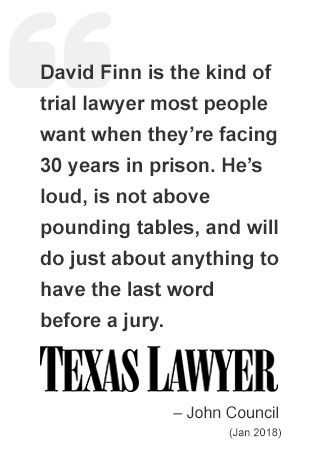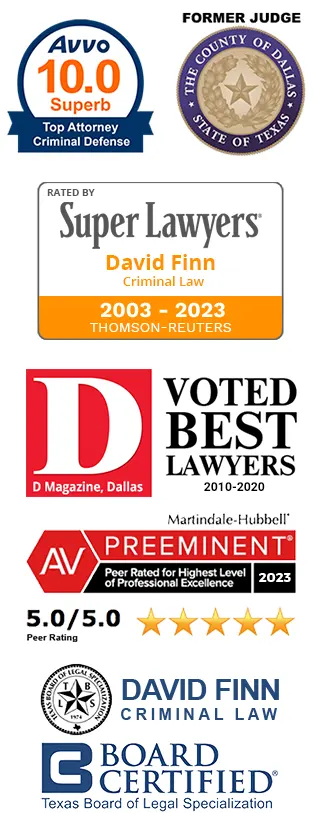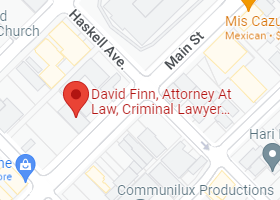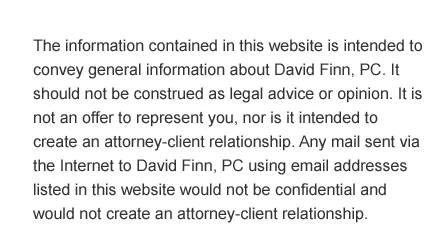


Library of Motions – Defendant’s Brief In Support Of Defendant’s Motion To Suppress Evidence
No. ___________________
THE STATE OF TEXAS IN THE ___________COURT
V. OF
JOHN DOE _____________COUNTY, TEXAS
DEFENDANT’S BRIEF IN SUPPORT OF DEFENDANT’S
MOTION TO SUPPRESS EVIDENCE
TO THE HONORABLE JUDGE OF SAID COURT:
DEFENDANT, JOHN DOE, submits the following in support of the Defendant’s Motion to Suppress Evidence, which was respectfully submitted to this court on the 30th day of July 2004
Procedural History
The Defendant allegedly committed the offense which is the subject of Cause No. 2004-405, 020 on January 12, 2004. The Defendant was arrested as a result of this offense and was indicted by a grand jury for the offense of possession of a controlled substance, namely cocaine, less than four grams but at least one gram on January 21, 2004.
Statement of Facts
On January 12, 2004, Officer Ross Umstot, was patrolling 34th Street in Lubbock, and pulled into the Jubilee Car Wash at 2331 34th Street to turn around. Upon entering the car wash, the police report states that the officer witnessed the vehicle in question parked in the southeast corner of the parking lot away from the service areas of the car wash. However, the offense video shows the vehicle parked near one of the vacuums and trash can. See offense video. In either event, the vehicle was parked legally, using the services of a 24 hour, coin operated car wash.
Officer Umstot parked his patrol car facing the vehicle and saw three individuals inside. The driver exited the car as Officer Umstot approached. He told the driver to get back into the vehicle. The officer then asked the driver what they were doing there and the driver replied that he was cleaning some things out of the vehicle. The officer again told the driver to sit in the car and asked all the occupants of the vehicle for identification.
While running checks on the licenses of the occupants, another officer arrived and Officer Umstot told him, “they were sitting far off from the vacuums looking really guilty of something,” See offense video. Officer Umstot also told the second officer that he was going to see if the occupants of the vehicle would consent to a search. See offense video. At this time, Officer Umstot returned to the vehicle and had the driver sit in the second officer’s cruiser. At some point, Officer Umstot allegedly observed opened and unopened beer cans in the vehicle, and he asked the passengers if they or the driver had been drinking. He then asked if either of the passengers had any weapons. The front seat passenger said that he had a knife in his pocket. The officer then asked the two passengers for consent to search the vehicle and the passengers’ reply was inaudible.
Officer Umstot proceeded to pat-down search both passengers and told them to sit next to the vehicle. While searching the vehicle, Officer Umstot found an ammo magazine from a pistol, some powder cocaine in the cab of the vehicle, and a shotgun in the trunk.
Arguments
I. Any evidence obtained in the search of the vehicle should be suppressed pursuant to Article 38.23 of the Texas Code of Criminal Procedure in that the Defendant’s rights under the Fourth Amendment to the United States Constitution and Article 1 (symbol)9 of the Texas Constitution were violated because the initial detention of the vehicle and subsequent search of the Defendant were not supported by reasonable suspicion.
An officer conducts an investigative detention by stopping and briefly detaining a person to ascertain his identity, reason for being in the area, or other similar inquiry. Tu Minh Trinh v State, 974 S.W.2d 872,874 (Tex. App.-Houston [14th Dist.] 1998). An officer may usually detain a person on less than probable cause to investigate potentially criminal activity if he can “point to specific and articulable facts, which, taken together with rational inferences from those facts, reasonable warrant [the] intrusion”. Carmouche v State, 10 S.W. 3d 323 (Tex.Crim. App. 2000) (quoting, Terry v. Ohio, 392 U.S. 1, 21 (1968). However, an inarticulate huch, suspicion, or good faith of the investigating officer is vener, sufficient justification for an investigatory detention. Glass v. State, 681 S.W.2d 599 (Tex.Crim.App. 1984). In Trinh, the court held that the stop and detention of the vehicle in thich the appellant was a passenger was proper since the vehicle was identified by a witness as associated with reported gunfire. 974 S.W.2d at 875.
In the present case, the officer did not possess the requisite reasonable suspicion because he detained the vehicle and its occupants based on an inarticulate “hunch” that the occupants were involved in criminal activity. In fact, when the second officer arrived on the scene, officer Umstot commented that as he drove around to the back of the car wash, “they were sitting far off away from the vacuums looking guilty of something.” See offense video. This statement indicated that, at the time of the detention, Officer Umstot could point to no articulable facts that would warrant detention of the vehicle. If circumstances such as those presented by this case were sufficient to show reasonable suspicion, then anyone sitting in a legally parked car for more than a few seconds could be subject to an investigative detention and search. Therefore, any evidence seized in the search in this case should be suppressed under Article 38.23 of the Texas Code of Criminal Procedure because the initial detention of the vehicle and its occupants was not supported by a reasonable suspicion, and therefore, in violation of the Defendant’s rights under the Fourth Amendment of the United States Constitution and Article 1 (symbol)9 of the Texas constitution.
II. Even if the officer received consent to search the vehicle, the consent was not valid because it was not free and voluntary; and it was not obtained from an individual authorized to consent.
For consent to be valid, it must be free and voluntary. United States v. Dortch, 199 F.3d 193, 201 (5th Cir. 1999). Consent to search may, but does not always, dissipate the taint of a prior Fourth amendment violation. Id. (citing United States v. Chavez-Villareal, 3 F.3d 124, 127 (5th Cir. 1993)). Consent given after a Fourth Amendment violation is evaluated using a two-pronged inquiry: (1) whether the consent was voluntarily given, and (2) whether it was an independent act of free will, Id. Voluntariness focuses on coercion and the second prong considers the causal connection between “consent” and the prior constitutional violation. Id.
In evaluating voluntariness, six factors must be considered, although no single factor is dispositive: (1) the voluntariness of the defendant’s custodial status; (2) the presence of coercive police procedures; (3) the extent and level of the defendant’s cooperation with the police; (4) the defendant’s awareness of his right to refuse consent; (5) the defendant’s education and intelligence; and (6) the defendant’s belief that no incriminating evidence will be found. Id. When considering the causal connection between the “consent” and the constitutional violation, three factors are examined: (1) the temporal proximity of the illegal conduct and the consent; (2) the presence of interviewing circumstances; and (3) the purpose and flagrancy of the initial misconduct. Id. at 202.
In Dortch, the court held that even if the appellant’s consent was voluntarily given, the consent was invalid because the causal chain between the illegal detention and the consent was not broken. Id. After conduction two pat-down searches of the appellant agreed. Id. at 196. In reaching its holding, the court noted that there was a close temporal proximity between the illegal conduct and the consent because the detention continued until the officers obtained the appellant’s consent. Id. at 202. The court also stated that there were no intervening circumstances between the detention and the consent because there was no reason to think that the appellant believed he was free to leave. Id. Finally, in considering the purpose and flagrancy of the initial misconduct, the court stated that although the purpose of the officers’ conduct could not be known, it was apparent that the officers intended to detain the appellant until the canine unit could arrive. Id. Based on these factors, the court concluded that because the appellant’s consent was not consensual due to no break in the causal chain between the illegal detention and the consent, and because there was no probable cause to search the appellant’s person, the evidence obtained from that search should have been suppressed. Id. at 202-03.
Additionally, a third party’s consent is only valid if it is shown that he has equal control over and authority to use the premises being searched. Maxwell v. State, 73 S.W.3d 278 (Tex.Crim.App.2002). This mutual use shows that a third party has the right to permit the inspection of the property and that others with an equal or greater interest have assumed the risk that the third may allow the property to be searched. See Id. In Maxwell, the third party’s consent to search the vehicle was held to be valid because he was given permission to drive the vehicle by the appellant. Id.
In the case at bar, the officer did not receive valid consent to search the vehicle because the consent was either tainted by the illegal detention of the vehicle and its occupants, or it was receive valid consent to search the vehicle because the consent was either tainted by the illegal detention of the vehicle and its occupants, or it was received from an individual not authorized to consent to the search. If consent was received from the driver, the consent was invalid because it was tainted by the illegal detention. The only time the driver could have given consent was after he was told to sit in the car with the second officer; he had no reason to think he was free to go at the time. Therefore, the driver’s consent could be neither voluntary nor an independent act of free will.
Additionally, any consent obtained by the Defendant or the other passenger would likewise be invalid since neither had authority to consent to a search of the vehicle. Unlike the consenting party in Maxwell, there is no evidence in the record that the Defendant or the other passenger had any control or authority over the use of the vehicle. Even if one of them did have authority to consent, the consent would be invalid because it would also be a product of the illegal detention.
III Since the Defendant’s Fourth Amendment rights were violated by the illegal detention and search of Defendant, he has adequate standing to object to the search of the vehicle.
The Defendant has standing to challenge the search of the vehicle because the initial detention and search of the vehicle and Defendant’s person violated his rights under the Fourth Amendment to the United States Constitution and Article 1 (symbol)9 of the Texas Constitution. Generally, to have standing to challenge a search of a vehicle in which the defendant is a passenger, the defendant must establish a legitimate privacy interest in the vehicle searched. See Trinh, 974 S.W.2d at 874. However, “a mere passenger can challenge the search of the automobile in which he is riding if the search of the vehicle resulted from an infringement (such as an illegal detention) of the passenger’s Fourth amendment rights.” Lewis v. State, 664 S.W.2d 345, 348 (Tex.Crim.App. 1984).
Since the initial detention of the vehicle and search of Defendant was in violation of the Defendant’s rights under the Fourth Amendment to the United States Constitution and Article 1 (symbol)9 of the Texas Constitution, he has standing to challenge the search of a vehicle. See Trinh, 974 S.W.2d at 874
CONCLUSION AND PRAYER
The evidence seized in the search of the vehicle in which Defendant was a passenger should be suppressed under Article 38.23 of the Texas code of Criminal Procedure as the product of an illegal search. Since the arresting officer did not have reasonable suspicion to detain the vehicle and its occupants and to subsequently search the Defendant, he has standing to object to the search at issue in this case. For the foregoing reasons, Defendant respectfully asks this court to hold that the search and seizure of the vehicle and Defendant was in violation of his rights under the Fourth Amendment to the United states Constitution and Article 1 Section 9 of the Texas Constitution, and suppress all evidence gained as a result of that illegality.
Respectfully submitted,
By: __________________________
CERTIFICATE OF SERVICE
This is to certify that on _______day of ______200__, a copy of Defendant’s Brief in Support of Defendant’s Motion to Suppress was delivered to the Criminal District Attorney of Lubbock County, Texas.
Phone Numbers
Office: (214) 538-6629

